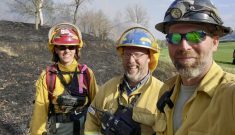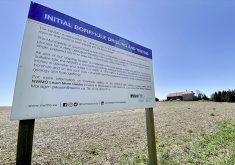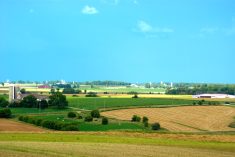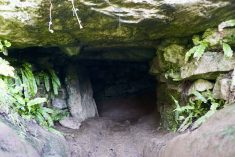Dear Editor,
I would like to respond to a recent story from Farmtario.com entitled Farmland versus nuclear waste.
We are grateful to the editor and readers for their time and the ongoing dialogue about the Nuclear Waste Management Organization (NWMO) and Canada’s plan for the safe long-term management of used nuclear fuel.
For more than five decades, Canadian communities have benefited from nuclear power to heat our homes and businesses. The current storage method for the resulting used nuclear fuel is safe, but not permanent. The plan we are implementing on behalf of Canadians is based on years of public input, and aligns with international best practice for protecting people and the environment.
Read Also

Canada seventh-most influential country on agri-food
Report from Dalhousie University and MNP shows Canada ranks seventh among G20 countries on agri-food influence.
The plan requires a deep geological repository, a system of naturally occurring and engineered barriers designed to contain and isolate used nuclear fuel indefinitely. A deep geological repository is globally recognized as the safest way to manage used nuclear fuel over the very long term, and the method countries with commercial nuclear power programs around the world are pursuing.
Our work is focused in areas where communities proactively expressed interest in participating. Ten years ago we initiated a voluntary process to identify a safe site for the project in an area with informed and willing hosts. Since then, through increasingly intensive study and engagement, we have progressively narrowed our focus from the initial 22 that came forward down to two: the Municipality of South Bruce and area near the Township of Ignace.
It is unfortunate that the article characterized Canada’s plan to safely manage used nuclear fuel as being in conflict with agriculture or other existing land use. In South Bruce, on the more than 1,300 acres where we have entered into agreements with local landowners, farming continues to be the primary economic activity.
In fact, our guarantee that existing use may continue is a key part of the agreements, and of our commitment to support economic activity as one of many ways we invest in local community well-being. We’re committed to protecting the environment and farmland, and minimizing disruptions to local businesses. For example, we only need access to a small area of land for technical site investigations. Even if the project is sited in South Bruce, current land use could continue for decades to come.
It’s clear South Bruce is proud of its agriculture roots. If the project is sited in this area, we are committed to working together with the community to ensure these special features are preserved and enriched though its implementation.
We continue to invite anyone interested in learning more about Canada’s plan for the safe, long term management of used nuclear fuel by visiting nwmo.ca or following us on social media @NWMOCanada.
Sincerely,
Becky Smith
Regional Communications Manager
Nuclear Waste Management Organization














